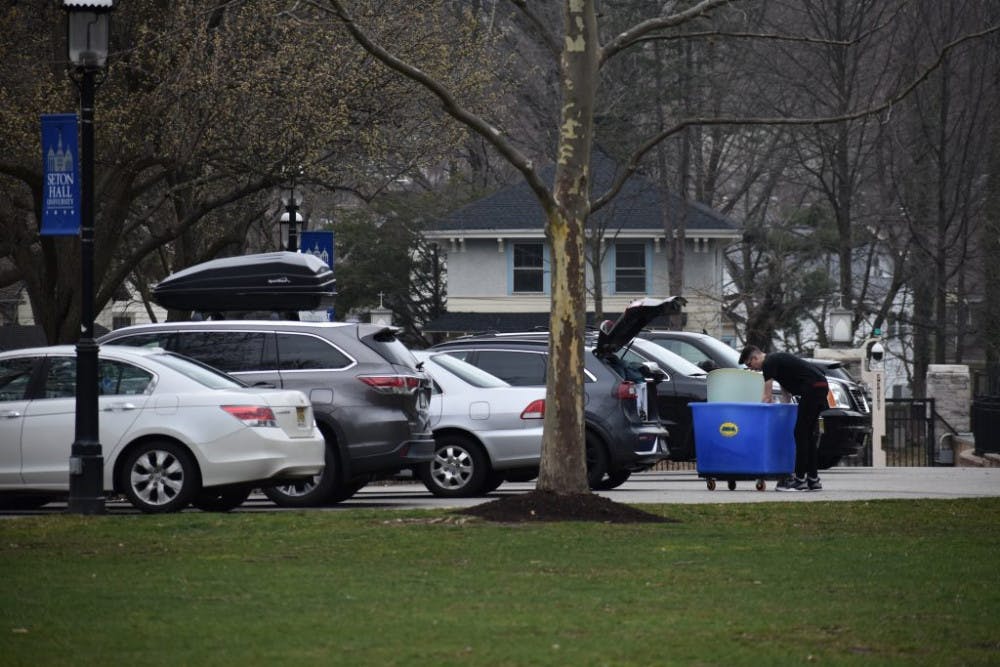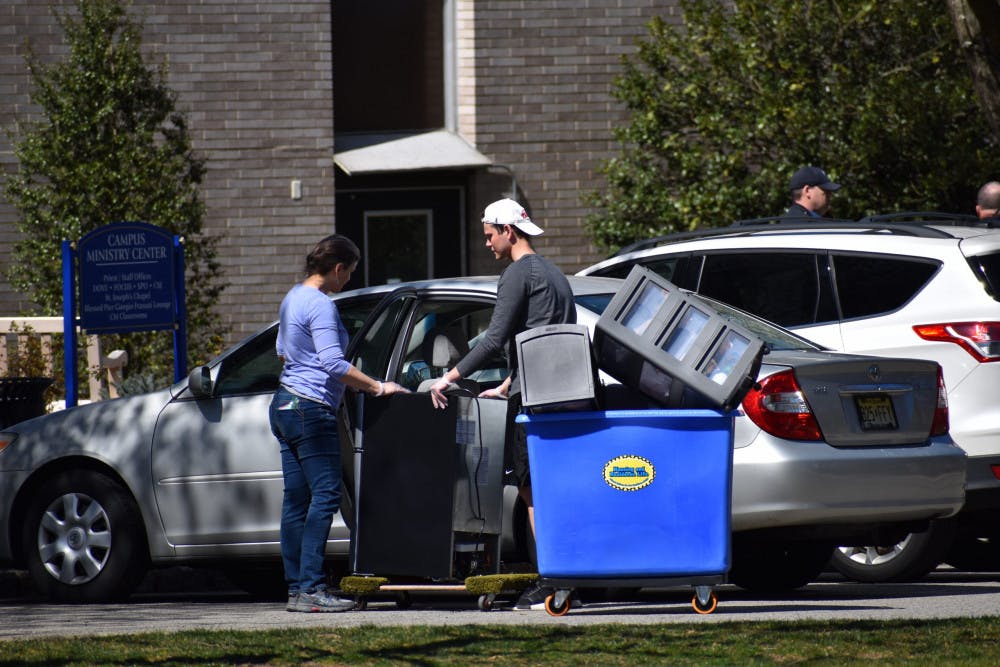Just eight days after asking Seton Hall students to leave their dorms, the University has issued a new request that resident students return to campus to retrieve all belongings they left behind by April 5 as the nationwide COVID-19 outbreak continues to rage on.

The notification, which was sent out to resident students, said that beginning on March 27 and lasting through April 5 students would be able to sign up for timeslots via their eRezLife accounts to return to campus and retrieve their belongings. Students will only be allowed to bring one person to assist with the move.
According to Seton Hall Executive Vice President Dr. Shawna Cooper-Gibson, the order given for students to remove their belongings stems from requests by state officials for the University to begin preparing for the possibility of having to house health care workers in dorm rooms as New Jersey’s fight against the COVID-19 outbreak continues to grow.
“Recently, New Jersey became the state with the second highest number of cases,” Cooper-Gibson wrote in an email to students justifying the order from Seton Hall. “As a result, the state’s hospitals are facing a situation where an overwhelming number of patients overload the capacity of our hospitals to accommodate them. Institutions like Seton Hall are also being called upon to do their part.”
Cooper-Gibson went on to say that Seton Hall will be “working to be in a state of readiness” should the state need to call on it for assistance.
Prior to the email explaining the decision from Cooper-Gibson, which was released several hours after the initial announcement, the announcement was met with criticism from many students online with some questioning why the University would ask students to leave campus only to then invite them back as the outbreak continues to worsen.
“Horrible. Very unfair and unsafe for students. Seton Hall should be embarrassed,” Brett Raichel, a freshman resident student, wrote in response to a tweet announcing the decision. “…this comes at the supposed peak of the outbreak. There is optimism that things will be better after Easter. While I disagree, at least wait until then and see if things are at least a little bit better by then. Don’t force us out a week before Easter even comes.”
https://twitter.com/clo_giow/status/1243231860769148929?s=21
Cooper-Gibson defended the University’s request and made no announcement indicating that there would be any widespread extensions for students to retrieve their belongings.
“I understand that you may not want your belongings packed and moved,” she said. “However, properly removing items from the residence halls now will better enable us to assist the state if an emergency situation dictates need for our assistance.”
Gibson also addressed why students were not notified earlier, calling the crisis a “rapidly-evolving situation” and that the University was trying to make decisions “as thoughtfully as we can, all while ensuring the health and well-being of our community.”
At least one other school in the area, Montclair State University, has also requested that students clear out their dorm by March 29.
Montclair State University media relations director Erika Bleiberg told The Montclarion as early as March 19 that Montclair was told by the state “to be ready for the possibility that the National Guard may need to transform college dorms into isolation rooms or extra hospital beds in case of a surge in cases.”
It’s unclear when Seton Hall was notified of the state’s request, but an email sent to Cooper-Gibson on March 20 by The Setonian asking if Seton Hall had received a similar request went unanswered.
Students who cannot return to Seton Hall by April 5 are allowed to appoint a proxy who must be a Seton Hall resident or relative to pack their rooms and remove the items.
If a student cannot locate a proxy or remove the items themselves, then on April 15 items will be “packed by a University designated moving company and locked in a secure location on campus.” Students must consent to the process, though it is unclear what would happen if students do not consent and refuse to pick up their items.
“None of us have experienced anything like the coronavirus pandemic before,” Cooper-Gibson said (in the email defending the University’s decision?), “and we are working diligently to provide the best response to keep all of you safe and healthy.”





